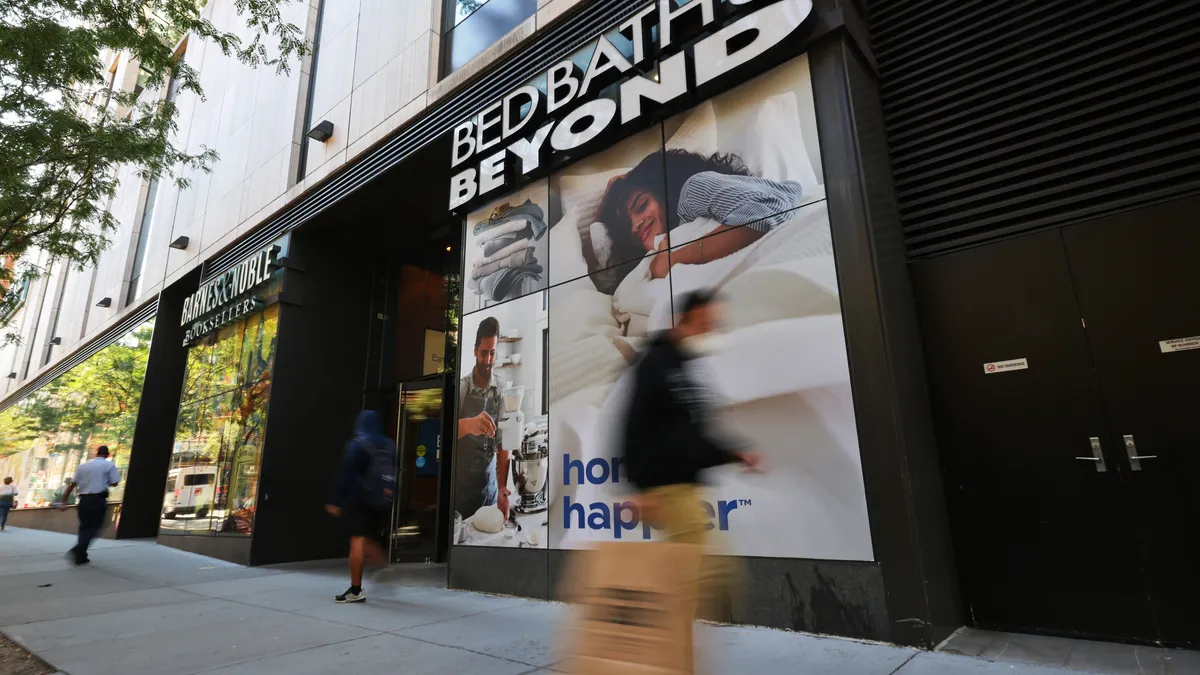Dive Brief:
-
U.K. retail sales fell at the fastest pace in more than four years this month, according to business and research organization CBI.
-
Nearly a quarter (24%) of U.K. retailers said sales were up in July compared with a year earlier, while 38% said they were down, balancing to an overall decline of 14%. This followed modest 4% growth in the previous month. CBI expects retail sales growth to fall further, for an overall year-to-August decline of 12%.
-
Just 9% of retailers placed more orders to vendors and 42% placed fewer. CBI anticipates orders will fall 24% further in August, the weakest expectation since September 2009. Grocers in particular saw volumes fall 30%, and the furniture and carpets retailers saw a 90% decline. Wholesale volumes also fell at the fastest pace since April 2013 and are expected to decline further next month. But sales increased 52% for general merchandisers and 44% for footwear and leather retailers.
Dive Insight:
Things are looking dire for retailers in Britain following the country’s so-called "Brexit" vote to leave the European Union: Consumers are tightening their pursestrings in the face of the resulting economic uncertainty.
But CBI chief economist Rain Newton-Smith said the initial worry from retailers could ease as months go by. He called for “calm and decisive leadership” in the aftermath of the vote.
“While conditions in the retail sector have weakened, we should be careful about reading too much too soon, as consumers were likely to err on the side of caution in the immediate period following a vote to leave the E.U.,” Newton-Smith said in a statement. He added that low levels of inflation and high employment should support spending in the near term.
The Brexit vote is leaving retailers in the U.S. largely unscathed, after some initial shakiness among higher-income consumers here who saw their investment portfolios take a hit when the vote shook global markets. Markets outside the U.K. have largely recovered, though, and some of the worry outside the U.K. has subsided, according to data from the University of Michigan Surveys of Consumers released earlier this month.
“While stock prices quickly rebounded, an underlying sense of uncertainty about global prospects as well as the outlook for the domestic economy have not faded,” Surveys of Consumers chief economist, Richard Curtin noted earlier this month. He added that the Sentiment Index was "rather minor and could be anticipated to recover some of those losses in late July or early August. Real consumer spending [in the U.S.] can be expected to rise by 2.7% in both 2016 and 2017.”














